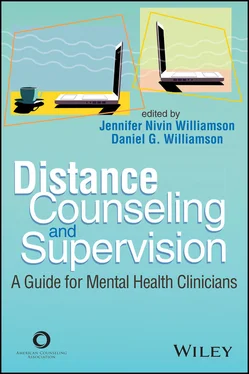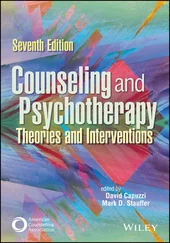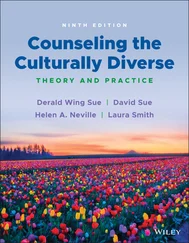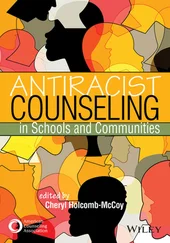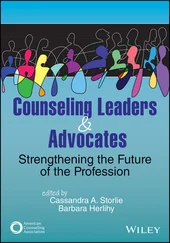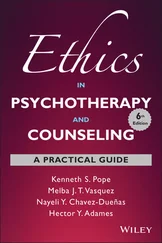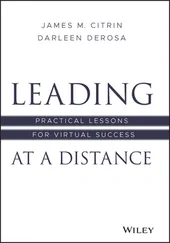Distance Counseling and Supervision
Здесь есть возможность читать онлайн «Distance Counseling and Supervision» — ознакомительный отрывок электронной книги совершенно бесплатно, а после прочтения отрывка купить полную версию. В некоторых случаях можно слушать аудио, скачать через торрент в формате fb2 и присутствует краткое содержание. Жанр: unrecognised, на английском языке. Описание произведения, (предисловие) а так же отзывы посетителей доступны на портале библиотеки ЛибКат.
- Название:Distance Counseling and Supervision
- Автор:
- Жанр:
- Год:неизвестен
- ISBN:нет данных
- Рейтинг книги:5 / 5. Голосов: 1
-
Избранное:Добавить в избранное
- Отзывы:
-
Ваша оценка:
- 100
- 1
- 2
- 3
- 4
- 5
Distance Counseling and Supervision: краткое содержание, описание и аннотация
Предлагаем к чтению аннотацию, описание, краткое содержание или предисловие (зависит от того, что написал сам автор книги «Distance Counseling and Supervision»). Если вы не нашли необходимую информацию о книге — напишите в комментариях, мы постараемся отыскать её.
*To purchase print copies, please visit the ACA website here
*Reproduction requests for material from books published by ACA should be directed to permissions@counseling.org
Distance Counseling and Supervision — читать онлайн ознакомительный отрывок
Ниже представлен текст книги, разбитый по страницам. Система сохранения места последней прочитанной страницы, позволяет с удобством читать онлайн бесплатно книгу «Distance Counseling and Supervision», без необходимости каждый раз заново искать на чём Вы остановились. Поставьте закладку, и сможете в любой момент перейти на страницу, на которой закончили чтение.
Интервал:
Закладка:
As we were editing the final chapters in February and March 2020, we began to experience something completely unexpected because of Coronavirus (COVID-19). Most communities in the United States and many communities across the globe were ordered to shelter in place. Counselors and other mental health workers were attempting to balance the necessity of limiting exposure to themselves and their clients while still maintaining services for clients in need during an incredibly stressful time. Even the most conservative and technology-cautious professionals were attempting to offer virtual services. For the first time in our memory, the Health Insurance Portability and Accountability Act of 1996 and other privacy laws were temporarily relaxed because of the emergency. Governors, federal offices, and licensure boards eased restrictions on definitions around residency and restrictions on the use of technology in counseling and supervision. Although the relaxation of these standards might have been temporary, it ushered in a new era of technology-based counseling and supervision. During this time, most counselors, counselor educators, and supervisors used various platforms to continue providing services for clients. Synchronous videoconferencing platforms such as Zoom, Doxy.me, and Webex became common venues for counseling and supervision. Clinical spaces were created in parked cars, spare bathrooms, or makeshift home offices. Professional organizations, including ACA and its state and regional affiliates, rose to the occasion and organized trainings via videoconferencing in an effort to help counselors across the globe prepare for the task before them. During an emergency, such as the COVID-19 pandemic, it is important for professionals to attend to licensing authorities’ websites for their state, their state’s governor’s office, the U.S. Department of Health and Human Services, state and local professional organizations, and national organizations (including ACA). ACA has a web presence dedicated to telebehavioral health in its Knowledge Center ( https://www.counseling.org/knowledge-center/mental-health-resources/trauma-disaster/telehealth-information-and-counselors-in-health-care/telebehavioral-health-licensure-and-liability-insurance).
This book is a tool for continuing the conversation among our colleagues to encourage the use of technology in productive, safe, and confidential ways so that we may better serve our clients, supervisees, and the profession. Although this resource offers suggestions for professional practice, it is our hope that it will provide insights and valuable questions for greater exploration as you venture further into telebehavioral health services.

All author proceeds from this book will go to Uganda Counseling and Support Services (ugandacss.org) in support of their efforts to bring counseling, education, and medical care to underserved communities throughout Uganda.
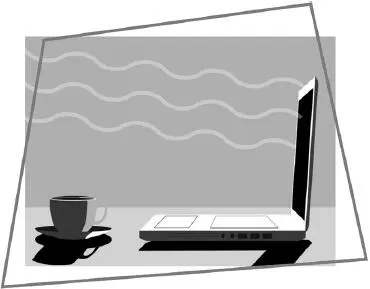
About the Editors
Jennifer Nivin Williamson, PhD,is a past senior cochair of the American Counseling Association (ACA) Ethics Committee and a current member of the Ethics Appeals Committee. Williamson, core faculty with Capella University and cofounder of PAX Consulting and Counseling PLLC, is a licensed professional counselor in Texas, licensed professional clinical counselor supervisor in Kentucky, approved clinical supervisor, and national certified counselor. She holds a doctorate from Baylor University and is a Fulbright specialist alumna in mental health. She has presented nationally and internationally on counselor ethics. She was the 2015 recipient of the Association for Counselor Education and Supervision (ACES) Counseling Vision and Innovation Award, the 2017 recipient of the European Branch of the American Counseling Association’s Professional Clinical Counselor of the Year Award, and the 2018 recipient of the Daya Sandhu Research and Innovation Award.
Daniel G. Williamson, PhD,is a past cochair of the American Counseling Association (ACA) Policies and Bylaws Committee and a current member of the ACA International Committee. Williamson, core faculty with Capella University and cofounder of PAX Consulting and Counseling PLLC, is a licensed professional counselor in Texas, licensed professional clinical counselor supervisor in Kentucky, approved clinical supervisor, and national certified counselor. He holds a doctorate from Baylor University and is a Fulbright specialist alumnus in mental health. He has presented nationally and internationally on counselor ethics. He was the 2015 recipient of the Association for Counselor Education and Supervision’s (ACES) Counseling Vision and Innovation Award, the 2017 recipient of the European Branch of the American Counseling Association’s Counseling Department Chair of the Year Award, and the 2018 recipient of the Daya Sandhu Research and Innovation Award.

About the Contributors
Susan E. Belangee, PhD, LPC, NCC, ACS,works in private practice in Canton, Georgia, specializing in using Adlerian strategies with clients struggling with body image and eating disorders. She has published several articles and contributed to book chapters on the topic as well. She serves as a supervisor in her practice for counselors pursuing licensure in Georgia and is a member of the Georgia Society of Adlerian Psychology. Susan is currently the past president of the North American Society of Adlerian Psychology (NASAP) as well as a diplomate of NASAP. She is a faculty member for the International Committee of Adlerian Summer Schools and Institutes; has worked as an associate professor at Holy Family University, where she served as institutional review board chair; and has taught online for Drake University and the Adler Graduate School. She presents regularly at local, regional, national, and international conferences on Adlerian psychology and its relevance to clinical research and practice. In addition to Adlerian organizations, Susan maintains membership in the American Counseling Association (ACA) and Chi Sigma Iota Academic and Professional Honor Society International.
Regina Bordieri, PhD,is a licensed marriage and family therapist who owns and operates a private practice with a physical location in New York City ( www.familyandcoupletherapy.com). She earned her doctorate in psychology in Alliant International University’s Couple and Family Therapy Program (accredited by the Commission on Accreditation for Marriage and Family Therapy Education) and maintains her license as a marriage and family therapist in California. She regularly provides online therapy in her private practice, including therapy services that are conducted exclusively online, hybrid services that combine online and in-person therapy sessions, and stand-alone assessment and relationship enhancement programs. She has a unique specialty focused on couples coping with a bipolar diagnosis (bipolarcouples.com). She was the recipient of the 2017 American Association for Marriage and Family Therapy (AAMFT) Dissertation Award for her research on couples with a bipolar-diagnosed partner and has provided numerous clinical trainings at national and state conferences and in mental health facilities on the systemic treatment of bipolar disorder. She presented a career development seminar on incorporating online therapy into a private practice at the 2019 AAMFT Conference. She is currently an adjunct professor in the psychology department of the City University of New York at Brooklyn College. She has also taught as an adjunct professor in several marriage and family therapy graduate programs. She currently provides online supervision and clinical trainings in online therapy.
Читать дальшеИнтервал:
Закладка:
Похожие книги на «Distance Counseling and Supervision»
Представляем Вашему вниманию похожие книги на «Distance Counseling and Supervision» списком для выбора. Мы отобрали схожую по названию и смыслу литературу в надежде предоставить читателям больше вариантов отыскать новые, интересные, ещё непрочитанные произведения.
Обсуждение, отзывы о книге «Distance Counseling and Supervision» и просто собственные мнения читателей. Оставьте ваши комментарии, напишите, что Вы думаете о произведении, его смысле или главных героях. Укажите что конкретно понравилось, а что нет, и почему Вы так считаете.
